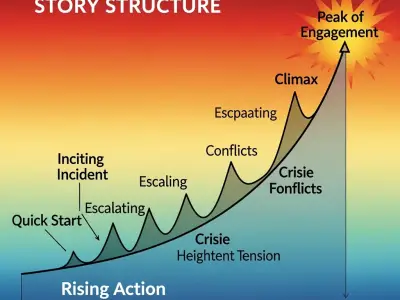If you’re working on a novel, short story, or script, you've probably spent a lot of time developing your protagonist. But what about the villain in your story? A compelling villain can transform a decent plot into something gripping and unforgettable. If you're wondering what makes a good villain or how to create one that stands out, you're in the right place.
In this article, we’ll explore how to write a good villain, what characteristics of a villain make them memorable, and why crafting a well-rounded antagonist is just as important as developing your hero.
Jump to:
- Why a Good Villain Matters
- What Makes a Villain a True Villain?
- Strong and Believable Motivations
- The Importance of a Villain's Backstory
- Clear Moral Opposition
- Consistent and Believable Behaviour
- Relatable, Even if They're Terrifying
- Distinctive Personality and Presence
- The Power to Change the Story
- Flaws and Weaknesses
- A Mirror to the Hero
- What Makes a Villain Scary?
- Can a Villain Become Good?
- Villains vs Antagonists
- Study Our Novel Writing Diploma for £29
Recommended for you!
Best SellersWhy a Good Villain Matters
A villain isn’t just an obstacle for the hero to overcome. They add depth, complexity, and stakes to your narrative, challenging your protagonist physically, but emotionally and morally. Great villains raise important questions and create tension that keeps readers turning pages.
Think of famous villain characters like the Joker, Lord Voldemort, or Darth Vader. They’re iconic both for their evil characteristics and for how they influence the hero and the story itself. Their actions shape the narrative and often force the hero to grow.
What Makes a Villain a True Villain?
At the heart of every great villain is a believable sense of purpose. The best villains don’t think they’re evil; they believe they’re doing what’s right. Their conviction, however misguided, gives them strength and makes their actions more disturbing.
The definition of a good villain is one who genuinely believes in their cause, no matter how twisted it may be. This belief drives their decisions and makes their role in the story far more powerful.
Strong and Believable Motivations
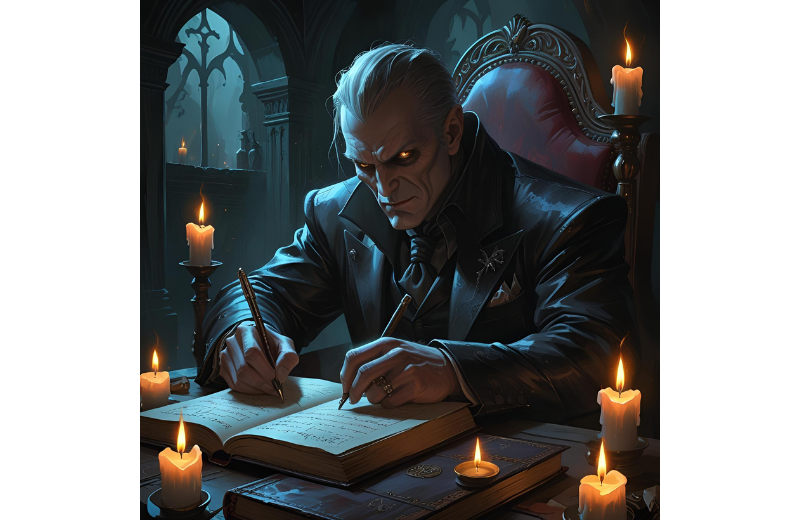
To truly understand what makes a good villain, you need to look at their motivations. A villain without a clear reason for their actions comes across as flat or cartoonish. Readers don’t have to agree with your villain, but they should understand them.
Villain motivations can include a desire for revenge, a belief in a greater cause, a need for control, or even fear. What do most villains want? Often, it’s something deeply human—recognition, love, justice—but pursued through dark and dangerous means.
Ask yourself:
- What does your villain want?
- Why do they believe they deserve it?
- What lines are they willing to cross to get it?
The Importance of a Villain's Backstory
Creating a villain with a rich backstory makes them far more interesting. Their past experiences, good or bad, help explain their behaviour and shape their worldview. The more thought you give to their history, the more authentic their actions will feel.
Villain backstories can involve childhood trauma, betrayal, societal rejection, or even failed ambitions. These experiences often plant the seeds of bitterness or ambition that grow into full-blown villainy.
A good villain backstory should be tied to their current goals, beliefs, and behaviour. It shouldn’t excuse their actions, but it should help explain them.
Clear Moral Opposition
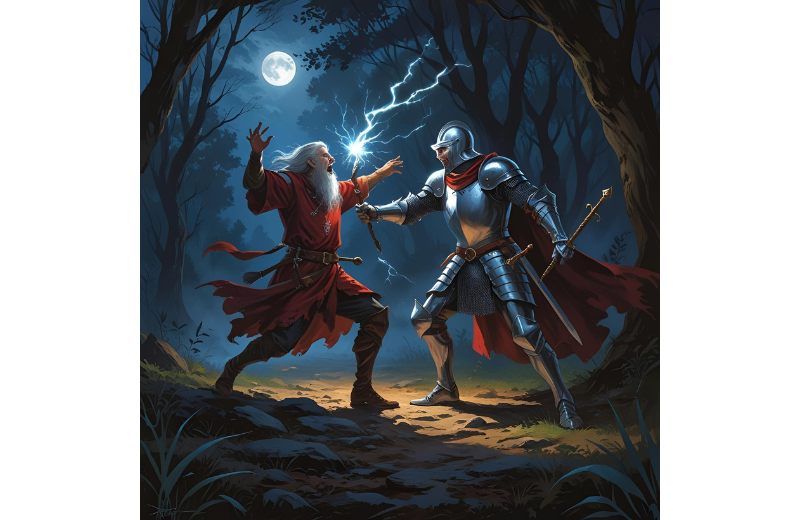
One of the most defining characteristics of a villain is their opposition to the hero’s values. The best villains aren’t just there to cause trouble; they represent a philosophical or moral conflict that challenges the hero’s beliefs.
This opposition helps drive the story’s central conflict. A villain who genuinely believes they’re right creates a much more compelling dilemma for the protagonist. It’s not just about stopping the villain; it’s about questioning what’s truly right or wrong.
Consistent and Believable Behaviour
Villains must be consistent in their actions, language, and motivations. Their decisions should make sense within the logic of their personality and background. If they’re manipulative, they’ll use lies and mind games. If they’re brutal, they’ll solve problems through fear and violence.
Inconsistent behaviour can weaken your villain’s impact. Believability is key, even if they’re part of a fantasy world. The reader needs to believe in them as a real person with real thoughts and emotions.
Relatable, Even if They're Terrifying
Some of the best villains are the ones you hate to love. They’re terrifying, yes, but also human. Maybe they want to protect someone. Maybe they were once good. These glimpses of humanity don’t excuse their behaviour but make them more emotionally complex.
Relatability is especially important if you’re aiming for a complex villain. A little understanding can make their cruelty more tragic, or more chilling. This is also what makes a tragic villain memorable: you see who they were before they turned.
Distinctive Personality and Presence
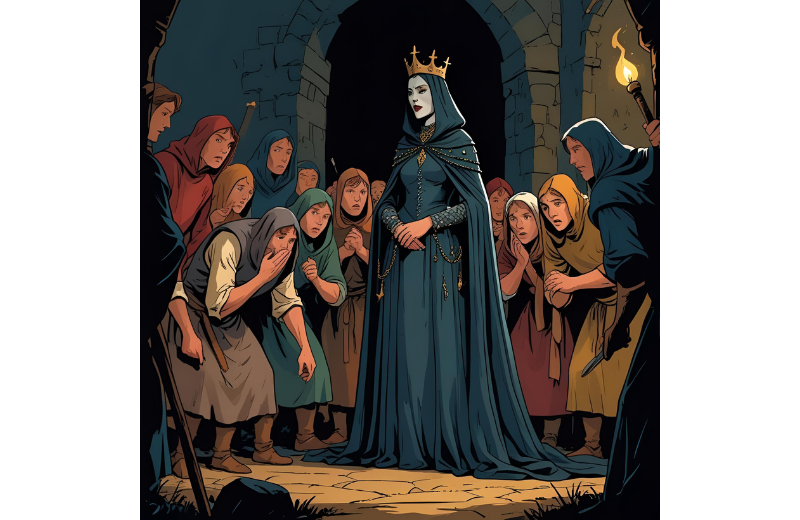
A memorable villain stands out. They should have a clear personality, unique traits, and a way of speaking or behaving that makes them instantly recognisable. Think of iconic villainous traits like arrogance, calmness under pressure, or theatrical flair.
Villainous show characters often have striking dialogue, a unique look, or a symbolic item. Think of the Joker’s laugh or Voldemort’s serpentine features. These details make your villain come alive on the page. When writing your villain description, consider:
- How do they talk?
- How do others react to them?
- What emotions do they provoke?
The Power to Change the Story
The villain must do more than oppose the hero; they need to drive the story. A passive villain who simply reacts isn’t very engaging. A great villain takes action, sets events in motion, and forces the protagonist to respond.
A villain’s choices should create challenges that push the hero to their limits. This creates a sense of urgency and keeps the plot moving. Whether through manipulation, power, or sheer determination, the villain should always feel like a real threat.
Flaws and Weaknesses
Even the scariest villains need flaws. These weaknesses can be emotional, psychological, or physical, but they should be meaningful. Maybe your villain is arrogant, short-tempered, or unable to trust others.
These flaws can create tension and offer opportunities for the hero to exploit. They also stop the villain from feeling invincible, which keeps the story grounded and suspenseful.
What are the villains’ weaknesses in your story? How do those flaws affect their goals?
A Mirror to the Hero
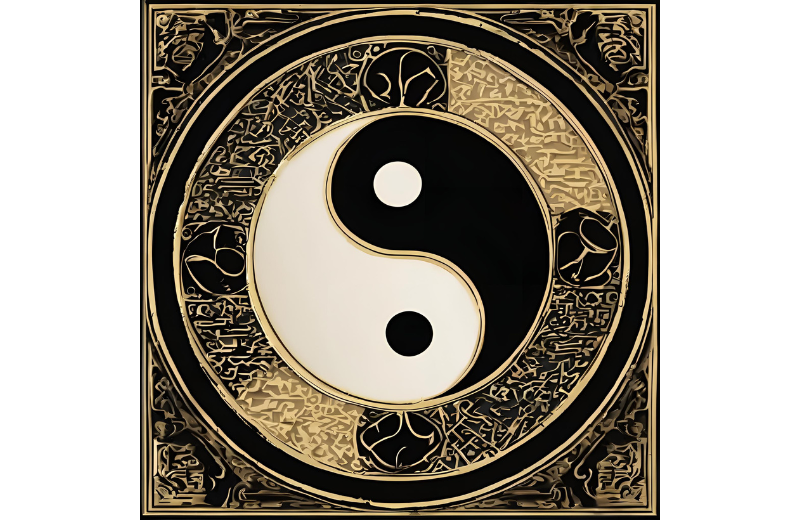
Some of the most fascinating villains are mirrors of the protagonist. They’ve experienced similar struggles but made different choices. This parallel deepens the emotional impact of their conflict.
By contrasting the hero and villain, you can explore powerful themes: free will, morality, justice, and redemption. These comparisons make your story more than just a battle of good versus evil; they make it a reflection on human nature.
What Makes a Villain Scary?
A villain becomes scary when they’re unpredictable, unstoppable, or disturbingly rational. What makes a villain disturbing is often not just what they do, but how they do it. Calm, calculated behaviour can be more terrifying than rage.
A smart villain, one who’s always one step ahead, creates incredible tension. How to write a mastermind villain? Make them strategic, emotionally detached, and always thinking ahead. These villains don’t just scare—they unsettle.
Recommended for you!
Best SellersCan a Villain Become Good?
Some villains can turn good, but it must feel earned. A redemption arc should involve internal change, sacrifice, and consequences. This can add emotional weight and complexity, especially if the villain’s choices affect those around them.
Whether you want your villain to be redeemed or remain a lasting threat, think carefully about their growth, or lack of it.
Villains vs Antagonists
It’s important to know the difference between a villain and an antagonist. A villain is a character who deliberately causes harm or chaos. An antagonist, on the other hand, is simply someone who stands in the way of the protagonist’s goals.
Not every antagonist is evil. Some may have good intentions but conflicting priorities. Understanding this distinction helps you build richer and more varied characters.
Study Our Novel Writing Diploma for £29
If you’re excited to start creating a villain of your own, or simply want to improve your writing skills, the Novel Writing Diploma Course from Centre of Excellence is an excellent place to begin. This course covers all aspects of storytelling, including character development, setting the scene, and crafting engaging plots. You can enrol today for a discounted price of just £29!









